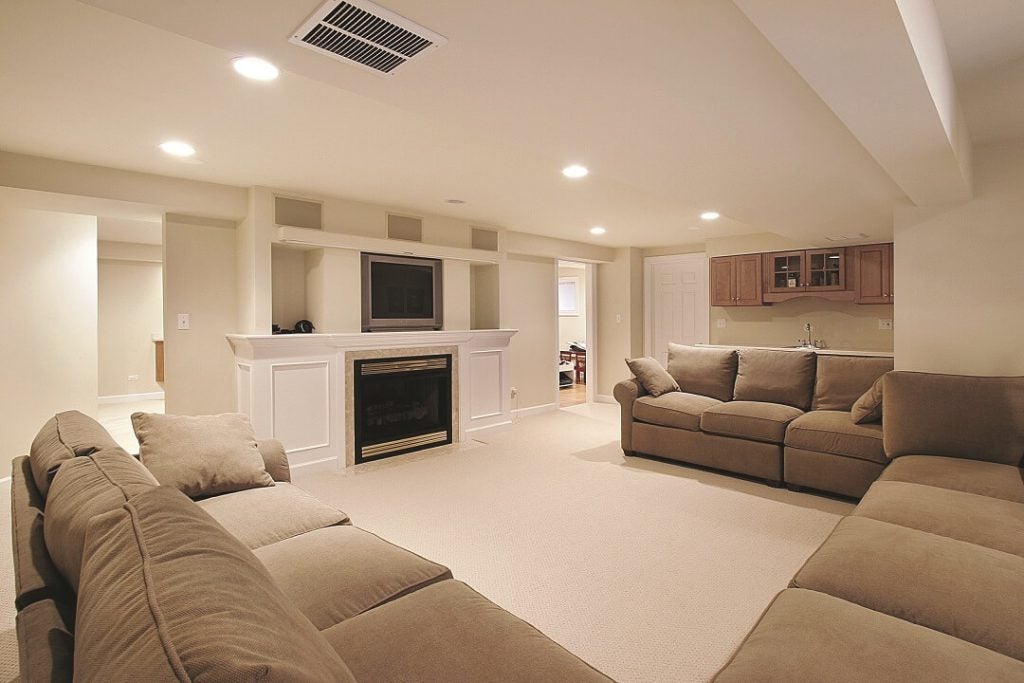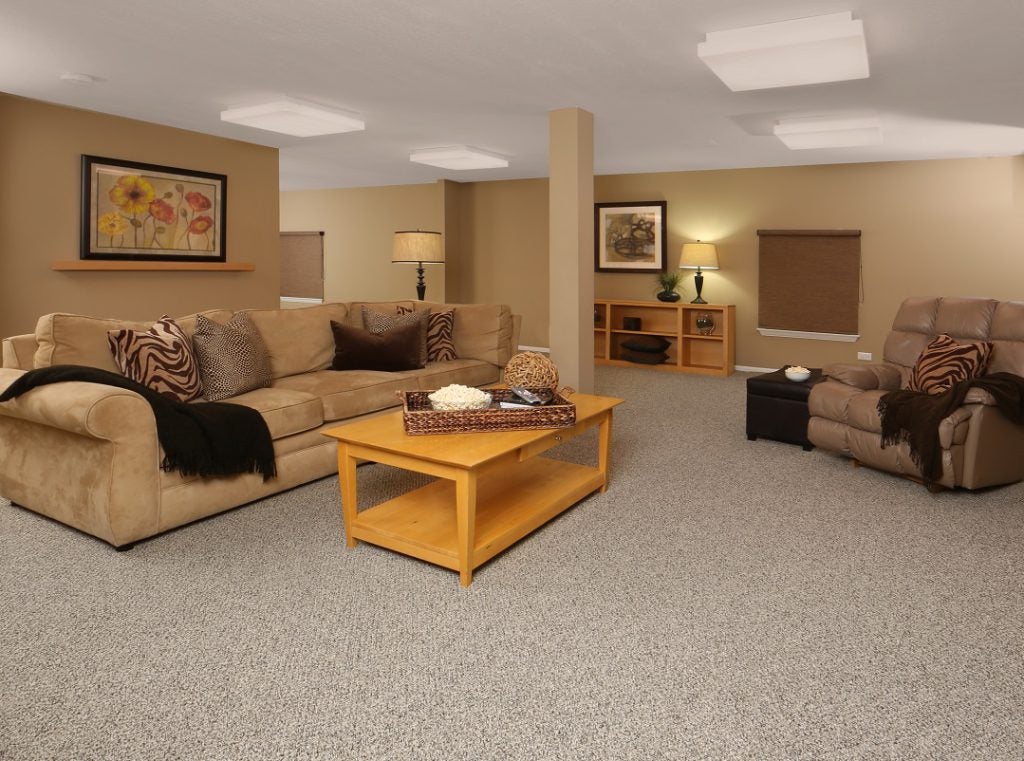As we continue to spend more time in our homes and our households stay more crowded for longer, it’s becoming more important to efficiently utilize every room in the home. For many homeowners, the basement is a major space that goes underutilized or completely unused—and which can often become a family favorite after a simple renovation. Depending on the current state of your basement, making it a more welcoming place might be a huge undertaking, or it could be as simple as adding a few creature comforts. Like, say, some new carpet.
The major worry that comes along with having new carpeting installed in a basement is the potential for water damage, which is a very valid concern. It’s important to stress that these recommendations are all intended for basements that do not regularly take on water—if yours does, then that’s something that you should address before making any cosmetic or livability updates to the space. But if your only worry is above-average dampness or an overall musty environment, then having carpet installed just might be the first step to creating your family’s new favorite room.

Yes! If there were only one upgrade we could give to a basement in order to make it more livable, it would be hard to choose something besides having new carpet installed. A simple soft surface between you and a concrete basement floor can completely transform how the space looks and feels. And it doesn’t have to be the headache that many imagine carpet in the basement will end up being. Here are some of the top reasons why you might want to install carpet in the basement:
It’s a warm, soft surface: Bare concrete is the most uncomfortable surface imaginable for an area where kids will play and the family will gather. Even a hard surface like vinyl flooring can still feel cold, both literally and figuratively. But a cozy carpet in the basement can turn that dim cave into a welcoming retreat. The added warmth and softness will let you kick off your shoes and really relax.
It helps muffles noises: While the basement is probably the best place to corral kids and pets when you want to cut down on noise in the rest of the home, all that ruckus in one spot can get irritating. As large spaces made entirely of bare, hard surfaces, basements can get pretty echo-y and make everything sound louder. A basement carpet floor can cut down on the noise for those who spend time down there, plus it can significantly improve the acoustics of your home theater sound system.
Carpet conforms to surface irregularities: This is an important consideration if you’re still deciding what type of flooring to install in the basement. If your basement floor is like most, it’s not perfectly level. Basement concrete is often not leveled to the tolerances that an above-grade floor would be, especially since upper-story irregularities can be fixed with various forms of underlayment between the subfloor and your choice of flooring. But these irregularities in your basement floor can either fully prevent products like tile or laminate flooring from being properly installed or will rack up additional costs for the labor required for leveling it. But if you don’t mind the slight waves or unevenness of your current basement floor, carpet can be installed right over them, hugging the surface and making that cold slab much more welcoming.
As mentioned in the opening, this article is based on the premise that your basement does not regularly flood. And if yours does stay dry year-round, then any carpet suitable for busy areas of the rest of the home, like a frieze or Berber carpet, will also work as a basement carpet. However, there are some optional features that can be of great benefit in your basement. Here are some things to look for when choosing a basement carpet:
Solution-dyed fibers: Odds are, the basement will be one of the major spots in the home for the rowdier activities. That means heavy foot traffic and a higher likelihood of spills. Solution-dyed carpets are highly resistant to fading and staining and can endure the use of strong cleansers. That means your basement carpet will stay looking new for longer.
Mold and mildew resistance: Even if your basement never takes on water, it will still most likely stay damper than the rest of your home. Add in the lack of natural light and regular air circulation, and it’s an environment perfect for mold and mildew growth. Empire Today® offers a variety of carpets with Microban protection, an antimicrobial treatment that inhibits the formation of mold, mildew, and bacteria.

Odor-reducing carpet: Regardless of your best efforts, it’s common for the basement to always have a bit of a funky smell. It’s just the nature of below-grade space with a lack of natural air circulation. And if that’s where the pets hang out and the kids make their messes, those can contribute to stale smell. Opting for an odor-reducing carpet can go a long way to cutting down on the dank odors.
With all of that said, we know there are some of you who may have been converted to the idea of putting carpet in the basement but are now bummed because yours occasionally gets some seepage. If your basement does take on the rare bit of water but you’d really like to soften those cold floors, then indoor/outdoor carpet might be an option worth considering. It will give you many of the benefits of a traditional Berber carpet while adding a little bit of color to your basement, but it’s built to withstand regular exposure to the elements. That means it should shrug off the occasional exposure to standing water without any issue, plus it’s built to be highly resistant to wear and the formation of mold and mildew.
Want to learn more about whether carpet is the right choice for your basement, or see other possible basement flooring options? Contact us to set up a free in-home estimate and flooring professional will guide you through all of the best choices, letting you see and feel samples of each product, all in the comfort of your home.
Get the latest updates delivered to your inbox.